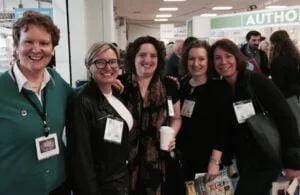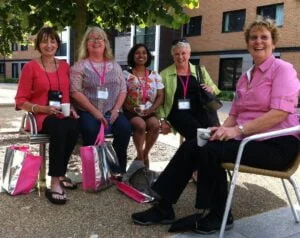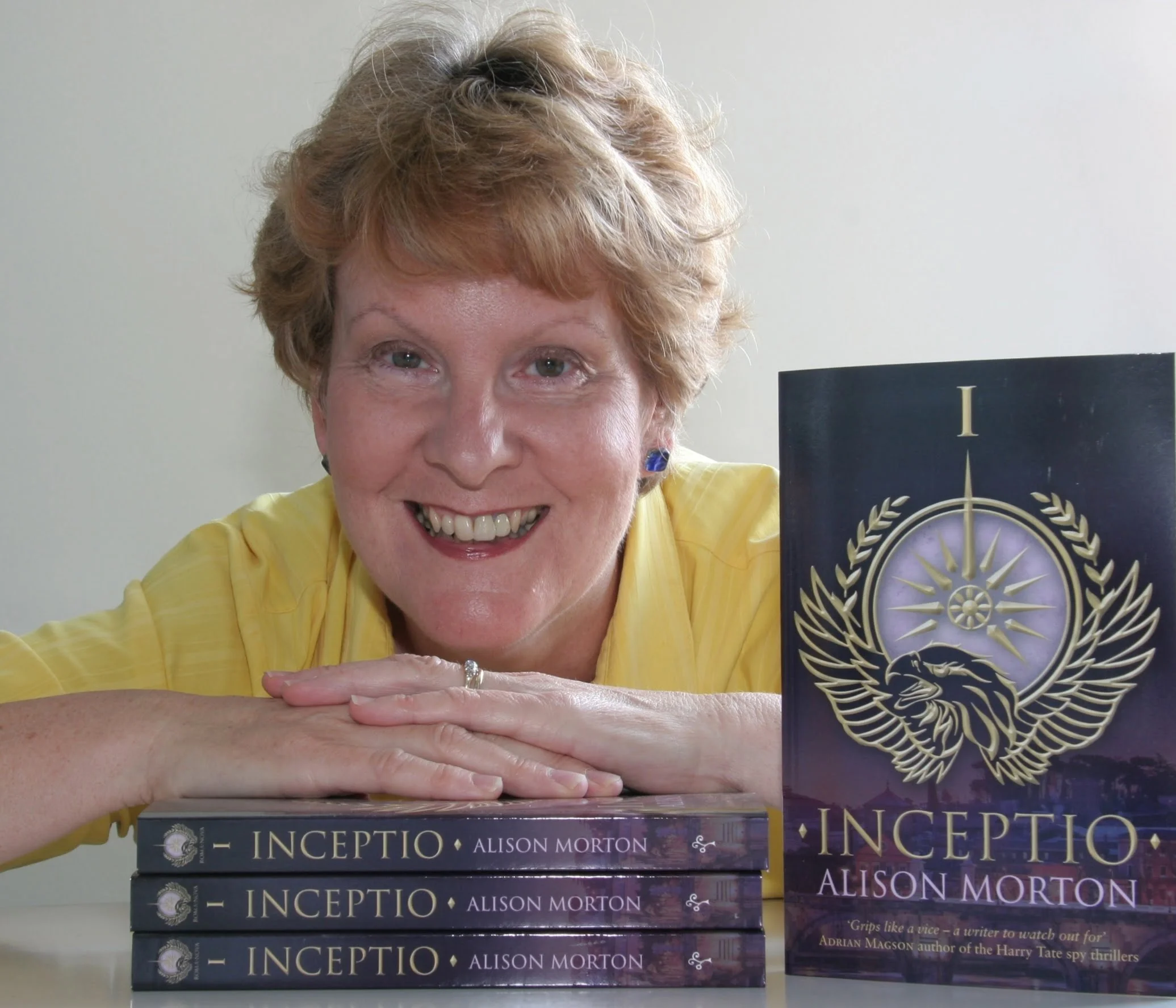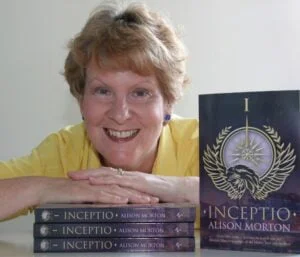Slowly but surely writing and publishing organisations are opening up to indie authors, not least because of ALLi’s tireless campaigning and our #publishingopenup campaign. Reporting here on a significant development inside the highly regarded British authors’ organisation, the Romantic Novelists Association (RNA), is the equally tireless English novelist Alison Morton, a member of the new Indie Author category.
The Start of My Journey to RNA Membership
When I tapped out my first (pretty rubbishy) manuscript, I knew nothing about the writing world. Rather excited by my daring, I joined the Romantic Novelists’ Association (RNA) in January 2010 under the New Writers’ Scheme (NWS). This was the first ever contact I had with any writers’ organization. As my books were going to be alternative history thrillers, I wasn’t too sure this was the right place for me. But egged on by my critique partner who said as I had a strong emotional relationship central to the adventures, I qualified. And I’ve never regretted it.

With RNA friends, Alison Morton and Liz Fenwick, Fiona Harper, Sue Moorcroft and Brigid Coady at the London Book Fair
The NWS aims to nurture new writing through mutual support, guidance and written manuscript assessments from experienced and multi-published authors. Mine have given me encouragement, specific craft techniques, stopped bad writing habits and generally upped my game by a considerable number of notches. But even more than the friendships I’ve made in the RNA is the open comradeship and sharing the wealth of knowledge and experience within the association.
I’ve attended RNA conferences, workshops, chapter meetings, written articles for the magazine and blog and have now given talks and been a panel member at events. And did I mention the legendary parties? I am now so embedded, many other members don’t realize I’m an independent, but just a multi-published author; many RNA ‘full’ members and several committee members regularly come to my book events.
But I’ve been stuck in the New Writers’ Scheme. For years.
Onwards and Upwards
My first novel, Inceptio, came out in March 2013 and seems to have enjoyed success at least equal to, if not more than, many RNA full ‘published’ members. By May 2015, four Roma Nova books were dancing all over the publishing scene, but I was still a ‘new writer’, unpublished in the RNA’s eyes.
Of course, I was not the only one. Mumblings turned into proposals to the committee, working parties, votes, more consultations and a final vote. Working out the eligibility of this new membership category took some head scratching! I was very pleased to be able to contribute to all these initiatives.
Apart from revolt in the ranks, the other problem for the RNA was that these multi-published successful independent authors were ‘bed-blocking’ the NWS, preventing new apprentice writers from entering the scheme. But the indies had nowhere else to go. It is to these authors’ credit that they have stayed loyal to the RNA in these circumstances. The Association obviously still had a special attraction for them!
The RNA Membership Debate
The RNA has struggled and debated internally about the self-published/independent question. As a volunteer-run organisation, they understandably feared being overcome by a flood of sub-standard rubbish which they did not have the resources to check.
Eventually, the criteria for independent membership of the RNA evolved after long discussion and consultation. An author must have self published at least two works of romantic fiction over 30,000 words in length. At least one of those works must have achieved sales in excess of 1,000 copies in a single 12 month period and/or generated income from sales over £500 in a single 12 month period. Some think these are conditions that some mainstream authors would struggle to achieve, but that’s a whole other argument! After three years, indie members are eligible to become full members (with voting rights). Now for me this is the last niggle; I would have preferred a year. Perhaps this criterion will evolve as things settle down…
Result!

Now part of the RNA furniture – Alison Morton (right) with fellow authors Liz Harris, Janet Gover, Rhoda Baxter and Maggie Gee at the RNA annual conference in 2013
Given the solid establishment of successful author-directed publishing in all its forms, i.e. where the author sells books, receives income and accolades and satisfies readers, it is indeed time the professional writing organisations embraced these writers. If they do not, organisations will not attract the next generation of writers, writers who now have a range of options to bring their work to market.
As a proud member of the RNA, a place where I have found friends, colleagues, support and champions and where I am able to give back to newer writers, I’m delighted to transfer from the New Writers’ Scheme to became the first ever “Independent Author Member”.
- For more information about our #publishingopenup campaign, click here.
- To sign our #publishingopenup petition, click here.
- To find out more about the RNA, click here.







[…] Writing: RNA Admits First Indie Author […]
Thank you to Alison for lighting the way so clearly. I joined the RNA this year as an indie author as well. But there’s more to be done to get quality indie books accepted everywhere…
[…] Alison Morton’s guest post celebrating the change of rules at the Romantic Novelists’ Association to admit self-published authors (albeit still in a different category to trade-published authors […]
Wow! That’s such an awesome story! While I don’t write romance, this is a HUGE step in aiding indies everywhere get the respect they deserve!
One small step…
Full marks to the RNA for initiating this new scheme. But indies need to do their part by writing high quality cracking stories that meet reader expectations.
You set it all out very clearly, Alison, as to why it makes no sense to keep we indie authors in the NWS scheme, taking up valuable space for a ‘wannabe’ writer. The way it was, we could have 100 books out there and still be considered ‘new writers’.
With one indie published novel and the second not due to be published until January 2016 I don’t yet qualify. But am sure I’ll be filling out that form as soon as my second novel hits Waterstones’ shelf!
Yes, if we present a professional novel with a fabulous cover, Waterstones and other bookshops are beginning to recognise the fact that the reader simply doesn’t care who the publisher is, so long as it’s a great story and error-free. Well done for your part in getting the IAM scheme off to a flying start!
Thanks, Denise. There’s a revolution out there and those writing organisations that adapt will survive and prosper.
Thank you so much for sharing your experiences on this, Alison – and for blazing the trail!
I continue to learn a lot from you and am grateful for all of it.
Very happy to share, Kathryn. It’s all about persistence!
After reading Alison’s post, I applied too – yesterday, I heard I got in. Yey.
Congrats, Caroline, and welcome!